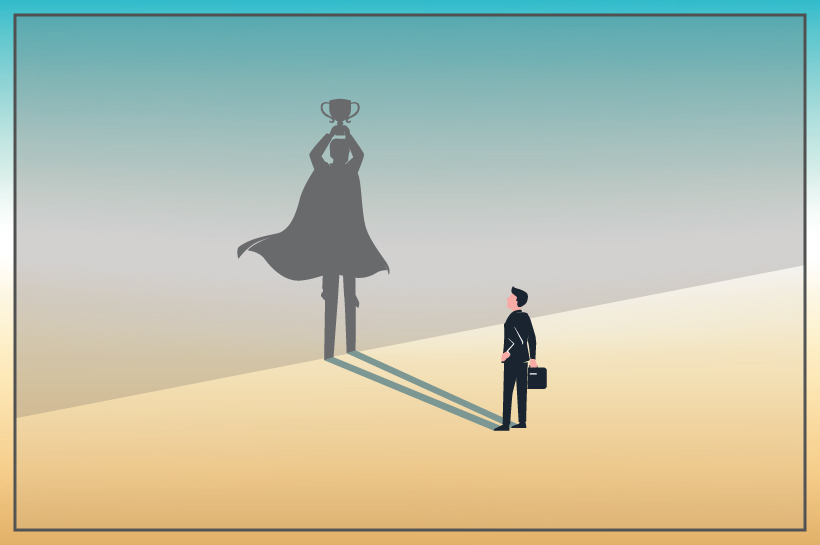Blog, Business Development, Leadership, Personal Development
Creating Safety for Ourselves and Being a Vulnerable Leader
Have you ever wondered what safety has to do with leadership, especially with a vulnerable leader, or being a working professional? The answer is: A lot!
Safety is a concept we learn early on during the most formative years of our childhood. We look to make ourselves feel safe on a daily basis. It is, after all, one of the most basic needs on Maslow’s Hierarchy of Needs, and until the need to feel safe has been met, we cannot begin working upward toward the other needs on the list. This leaves us feeling insecure, unfulfilled, and frankly, unhappy.
You’re probably wondering what safety has to do with leadership or being a working professional. The answer is: A lot.
There’s been more and more press recently about being a vulnerable leader, opening ourselves up to connection and authenticity, and how all these things can make us stronger leaders, managers, supervisors, or even just colleagues. And what does it all mean? How can these things make us stronger networkers or speakers?
As professionals, we tend to go through a little bit of a push and pull between wanting to appear professional and be powerful in the moment and still managing to speak to our audience and connect with them. It’s a little bit of a dichotomy, and experiencing this contradiction can make it very difficult to really feel comfortable being vulnerable.
For those of you who don’t know my backstory, I have a background as a therapist, business coach, and voice actor. From my earliest time as a child, I remember creating a lot of safety for myself by anthropomorphizing the entire world around me (and I still do it today). This has brought me to collect and own a large collection of friends and creatures who have brought me great comfort throughout the years and have their own wisdom that can really only be accessed when you speak in their voice.
Have I lost you yet? No? Good. I'm talking about a large group of puppets, the first of which I discovered at a puppet petting zoo that had been set up when I was in graduate school to become a therapist. It was meant for therapists to shop around to use puppets as therapy tools, but what we found there was much deeper. I noticed George, the black-footed ferret, and I started thinking about how much of a crisis of conscience he was probably having being that he is a carnivore, but he’s also cute and fuzzy. I felt a connection with him right away, and I looked around and noticed that my connection to George was causing others to come over and check out the other carnivores like the wolves. People saw my connection with George, and they wanted to feel that connection too. Spontaneously, several other therapists and I started a carnivore support group. And no, I can’t make this stuff up!
You might never be in a situation where you’ll be connecting with a puppet at a puppet petting zoo, but this lesson translates into human connection as well. When people really connect with one another and allow themselves to be vulnerable, they find a common space of humanity. This common space acts as a mirror to other people, making them more comfortable and willing to come forward with their own feelings.
Many of us as children don’t successfully go through the stage in our childhood that Erik Erikson determined as the time when we decide if the world is a safe place or not. This causes them to not trust the world and to feel like it isn’t there for us. I was one of these people, and there are many, many more like us in the world as well. It’s important to look back through our childhood and find those things that made us feel safe as kids. This can trigger a neurological, emotional, and even a physiological response that can help us move past that unsafe space and step into our adult being so we can then take care of the younger parts of ourselves.
Sometimes to cope with our sense of ‘un-safe-ness’ we over-rely on things like food, sexual contact, or other things that may or may not serve us. We even have a tendency to search for connection on social media, but this often leads to us finding things that are very overstimulating and provoking. It does us no favors, especially for those of us who feel emotions very intensely.
As humans, we have a tendency to want to make decisions right away. We want to push forward, do things, change the environment…but if we do this on top of feeling unsafe or insecure, we might be doing things that actually snowball the negative feelings and lack of safety and make it worse.
Listen to yourself, and you’ll be more able to listen to others. Connect with people, look into their eyes, and when you get nervous or feel afraid, take care of the younger part of yourself that doesn’t feel safe. You can have the grown-up part of you take care of the little parts of you. It’s okay, and it’s necessary.
And, if you need help, just ask.
Take the next step in Your Leadership

Create a Professional and Profitable Audiobook!
The Insiders Guide to Audiobook Production gives you the inside track to create a high-quality and effective audiobook and reach a much larger new audience.
Thank you!
Please check your inbox for your email.
If you don't see anything in a few minutes, please check your spam folder.

